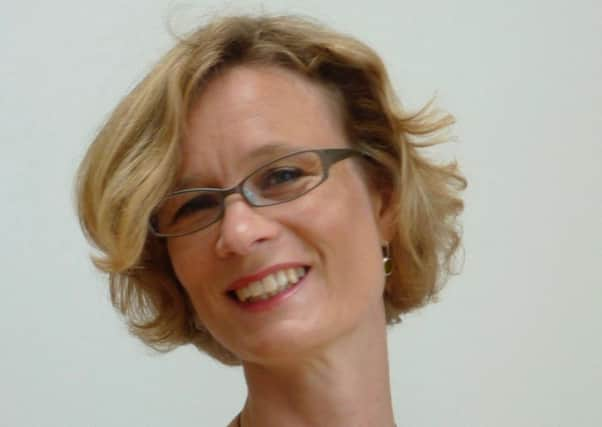Fran Van Dijk: We must educate and inform to tackle climate change


Is this enough to spur us into tackling climate change and other sustainable development priorities? In part, yes. But there’s something fundamental hampering the transformation needed to develop our economy, environment and society in a truly sustainable way. That is the challenge of communicating what sustainable development actually means. Making this complex topic accessible and understandable is vital as we work towards realising the UN Sustainable Development goals.
The issue of sustainable use of land and natural resources, for the benefit of people, communities and the environment is something that the Macaulay Development Trust supports by investing in world class research.
Advertisement
Hide AdAdvertisement
Hide AdThe trust can trace its origins to the 1930s, to an endowment from Dr T B Macaulay. With family from Lewis, his vision was to improve the productivity and sustainability of Scottish agriculture through sound research.
He generously founded the Macaulay Soil Research Institute (now part of the James Hutton Institute) and the Macaulay Development Trust (MDT). The MDT builds on his vision and supports excellent research into the sustainable use of land and natural resources. To check we are actually making a difference, we measure both the scientific and societal impact of our grants.
Our work can be illustrated by examples of projects we have funded in recent years, such as community participation in renewable energy projects. A challenge surrounding renewable energy is to understand which ownership models – public, private or community based – work best, and for whom.
The potential for civic participation in energy systems was examined and its benefits, risks and opportunities explored. Several interesting findings came to light. UK community energy projects potentially have access to lower-cost finance than commercial ones. The ownership of generation technology by end-users is also crucial for business models targeted at the off-grid sector in the ‘Global South’. Finally, indigenous utility-scale storage technologies are being crowded out by interconnectors, which allow energy to flow between networks. These findings subsequently led to the roll-out of an evaluation methodology across Scotland and a high-impact paper on energy storage.
There has also been research done into the rapid response to extreme weather. In addition to fellowships, the MDT also funds rapid response in extreme situations. Climate change is likely to cause increasingly frequent and severe weather events.
Scotland experienced a taste of this on 30 December 2015, when the Dee in Aberdeenshire flooded, causing serious damage to buildings and infrastructure. Extremely high water levels in January actually ‘reset’ river forms, necessitating a reassessment of how we manage flood risk and habitats in the area.
Jointly funded by MDT, the Scottish Environment Protection Agency, Aberdeenshire Council and Aberdeen City Council, aerial and ground-based surveys enabled a comprehensive analysis of erosion and deposition, providing valuable information for concerned stakeholders. It also established a useful baseline for analysing river behaviour and anticipating and responding to future floods.
We are also keen to foster innovation in agriculture. MDT recognises that innovation is an essential driver for the transition to sustainability, and learning about how people respond to creative, sustainable opportunities can help catalyse change.
Advertisement
Hide AdAdvertisement
Hide AdMDT has funded research into designing a programme to increase understanding of the economic factors influencing the uptake of sustainable production systems on farms. This work led to the development of free, publicly available software to help farmers assess the potential for investment in anaerobic digestion projects.
Scientific research, especially when combined with socio-economic understanding, is a powerful tool to inform, transform and inspire. So, the Macaulay Development Trust is delighted to welcome Professor Jacqueline McGlade back to Scotland for our annual lecture on 3 October in Edinburgh.
As a distinguished former chief scientist at the UN Environment Programme, who has lived and worked at close quarters with communities globally, Professor McGlade has unique insights to share and will discuss the practical challenges we can expect to face as we tackle climate change, as well as broader, global sustainable development challenges. The 41st TB Macaulay Lecture, The Challenge of Sustainable Development: From Global UN Policy to Local Community Survival in the face of Climate Change, by Professor McGlade, is at 5.30pm on Wednesday 3 October at Dynamic Earth, Holyrood Road, Edinburgh. To book your place visit http://bit.ly/41TBMacaulayLecture
Fran van Dijk chairs the Macaulay Development Trust. Visit www.macaulaydevelopmenttrust.org.uk